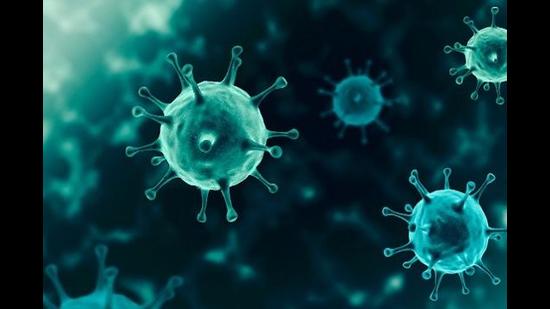A new Covid-19 wave is here. Junk old rules
Omicron is not the last variant. A new way has to be found of living with it — and despite it. Stop random testing, spread the message about the latest home isolation norms, and open educational institutions with necessary safeguards
Shefali Manilal is a French school principal of Indian origin who came to Delhi to meet her mother along with her 11-year-old son. On arrival, she tested negative for Covid-19. But a few days later, both tested positive. They were asymptomatic and had no visible signs of illness. But as a matter of abundant precaution, Manilal and her son began the process of self-isolation.

However, to Manilal’s shock, an ambulance arrived at her residence to ferry her to Fortis Hospital where she was kept against her will for several days, in institutional isolation. Apart from the issue of civil liberties, Manilal is right in raising questions about how ludicrous her experience has been. “Should a hospital bed really be wasted on me; should the time and resources of doctors be spent on me who has no symptoms at all?”
The Omicron variant of Covid-19 is in such wide community transmission that we are likely to be looking at several lakh cases in a single day within a couple of weeks, maybe even earlier. Already, the rate of growth is dramatically exponential; India saw a 56% spike in a single day.
And yet, the data from Mumbai, one of the most vaccinated cities in India, tells you, recoveries are taking place within three to five days, at least 90% of cases are asymptomatic, and very few people have needed oxygen. This is also because Omicron seems to be triggering muscular pain, instead of impacting oxygen saturation levels.
In the face of this early evidence, it is not cavalier or callous to start asking whether we need new protocols in the third wave.
With such widespread transmission — the numbers have already jumped four times since the beginning of the year — contact tracing and the ancient regime of trace, test, and isolate seem pointless. In any case, we shall never have a precise measure of Omicron cases because only government laboratories can do genome-sequencing, and there are too many positive cases for each to be mapped.
It is not my argument that anyone who wants a test should not be able to access one. It should remain the right of any citizen to get a Covid-19 test. And we need to make home-testing kits affordable, accessible, and interlinked to official data systems.
But as a policy prescriptive, we should stop random testing or even testing of everyone who has come into contact with a Covid-19 positive patient, but displays no symptoms of their own.
It’s a highly welcome move that the Union government has recognised the impracticality of this, and its revised guidelines say that asymptomatic contacts need not get tested. That home isolation has been reduced to seven days (from the fortnight during the Delta wave) is also great. Now, the government needs to get this message out more widely.
Workplaces and residential societies are still stigmatising Omicron, over-reacting from muscle memory. A mandatory insistence on frequent tests, even for those who have zero manifestation of disease, every time there is any contact with a Covid-19-positive patient is no longer a workable way to live. Going forward, as the wave peaks and the numbers become calamitous in volume, we will be meeting someone who is Covid-19 positive every single day, for a few weeks at least. Apart from the strain on the testing infrastructure, what does it achieve? Mandating this will close down workplaces, commerce and livelihoods, not to mention essential services.
It is especially offensive to see politicians campaign amid crowds while they lock down the rest of us into our homes over the weekend or at night.
Other mindless measures that must stop are the closure of schools and the sealing of buildings. There is no evidence that normally healthy children suffer any severe consequences from Covid-19, not even from the more lethal Delta strain. While vaccination of children is welcome, and it’s great to see millions of teenagers receive the jab this week, the shots in themselves do not prevent transmissibility. Hence it is befuddling to close schools instead of mandating masks and opening them. Can children afford to skip physical school for the third year? Won’t the cognitive and emotional damage to them be much greater than the virus could possibly inflict?
It is an inflection point in India’s tryst with the pandemic. It is time to ask the uncomfortable questions without being dismissed as unfeeling. Too many of us have suffered deep personal losses in these two years to be any version of casual.
Covid-19 isn’t ending; Omicron is not the last variant.
A new way has to be found of living with it — and despite it.
Barkha Dutt is an award-winning journalist and author
The views expressed are personal
All Access.
One Subscription.
Get 360° coverage—from daily headlines
to 100 year archives.



HT App & Website






